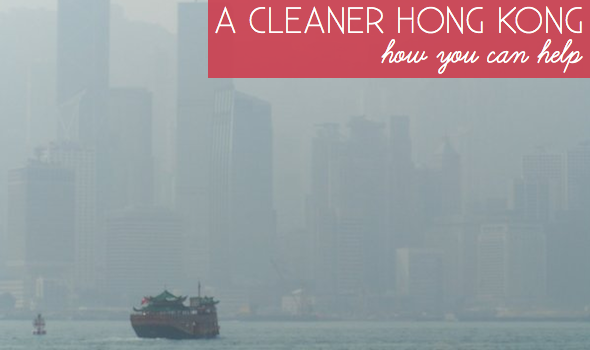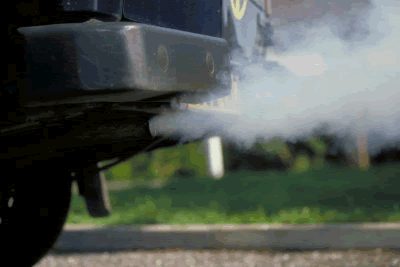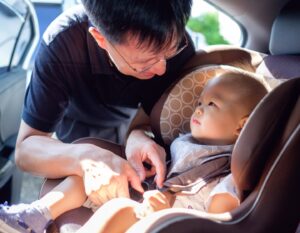

We all know that Hong Kong is one of the most polluted cities in the world and here are some rather scary but true statistics!
– Every year in Hong Kong, pollution from 3,800,000,000 cigarettes and cigars creates 6 tonnes of nicotine, 57 tonnes of respirable suspended particles & 295 tonnes of carbon monoxide.
– Hong Kong has the highest road traffic density in the world.
– Leaving an aircon running for 1 hour with no one in the room is equivalent to leaving the light on continuously for 4 days.
– China Light and Power (CLP) and HK Electric (HEC) Holdings emit 76,273.97 tonnes of carbon dioxide (CO2) into Hong Kong’s air every day. That is 3,190 tonnes per hour.
– Over 50% of the pollution in Hong Kong is produced locally.
– In Australia each person has 374,800m squared of space compared to Hong Kong’s 154.4 m squared each in which to breathe the C02 and pollutants emitted. That is 42 kgs emissions per metre squared per Hong Kong person per year compared with 0.072 kgs emissions per m2 per Australian person per year.
We could go on and on but I think you get the picture, we need to do something to help our environment before it is too late, especially with our next generation of littlies in mind!
How can you help? There are various organisations that you can join to help promote a cleaner Hong Kong, who are always on the lookout for volunteers:
- Clear The Air (CTA) www.cleartheair.org.hk
CTA are always on the lookout for new volunteers to help them with idling-engine patrols, smoky vehicle spotting and smoky vessel spotting.
- Hong Kong International Coastal Cleanup Challenge (ICC) www.hkcoastalcleanup.org
With plastic bags, bottles and food ware as the top three debris found on Hong Kong beaches, this is an issue that can’t be ignored! Along with beach clean-ups (sign up a family team and go clean!), the ICC also organises the “Plastic-Free Pledge” to help reduce the use of single-use plastic
- Clean Air Network (CAN) www.hongkongcan.org/eng/
CAN need volunteers in many different areas related to educating the public about the impact of air pollution, so check their website for more details.
- Friends of the Earth (HK) (FOE) www.foe.org.hk
One of the FOE’s most renowned campaigns is Lights Out Hong Kong to encourage us to switch off our lights for 3 minutes once a year. They rely totally on donations from the public and volunteer work.
- Green Lantau Association (GLA) www.greenlantau.com
GLA was formed to oppose ExxonMobil (China Light and Power’s proposal to build a 6000 Megawatt coal-fired power plant at Fan Lau, the beautiful and historic area at the south-west tip of Lantau). Fan Lau is still untouched and GLA is still fighting to save as much of the rest of the island as it can. All of GLA’s work is undertaken by volunteers independently of external funding.
- Green Council www.greencouncil.org
Green Council encourages and assists the industrial and commercial sectors to include environmental protection in their production and management processes, and promotes and provides public environmental education.
- WWF www.wwf.org.hk
WWF helps you explore Hong Kong’s wetlands, take part in community events or find simple ways to reduce your ecological footprint; you can also get involved in the many programs, initiatives and events on offer.
Even if you don’t have the time to get involved with any of the above organisations, that doesn’t mean you cannot assist with a cleaner Hong Kong! Here are some everyday tips that can ensure you are still doing your bit for the environment:
Transportation
- Form a car pool with friends or colleagues
- Keep your car properly tuned: an inefficient car will use more fuel and emit more pollutants. Maintain correct tyre pressure by inspecting your tyres regularly and inflating them to the pressure recommended by the manufacturer.
- Avoid unnecessary acceleration and deceleration, because it increases fuel consumption.
- Switch off when idling.
- Avoid carrying unnecessary things or installing unnecessary car fittings as extra weight will result in fuel wastage and extra pollution.
- Use public transportation as often as possible – the wide availability of trains, buses, minibuses and ferries in Hong Kong means that most areas can be reached without much expense.


Saving Energy
Lighting accounts for around 15-20% of your domestic electricity bill. There are simple ways to reduce energy use in lighting without having to grope in the dark!
- Switch lighting on only when and where you need it.
- Use daylight whenever possible.
- When buying new lighting, consider choosing compact fluorescent bulbs, which use 75% less energy than standard bulbs for the same amount of illumination.
- Use dimmers where possible (except for fluorescent lamps and compact fluorescent bulbs).
- Use non-opaque, light-coloured lamp shades.
- Keep light fixtures and lamps clean to maximise their efficiency.
Air conditioning is another major form of energy consumption in your home, but there are ways in which you can use it more wisely.
- When buying an air-conditioner, check its Energy Efficiency Ratio, with lower numbers denoting better efficiency.
- Avoid installing air-conditioners where they will be exposed to direct sunlight.
- Turn air-conditioners off in unoccupied rooms.
- Keep windows and doors shut when the air-conditioner is running.
- Place weather strips on doors and windows to prevent the leakage of cool air.
- Clean or replace the filters in all air-conditioners at the beginning of summer, and clean them every two weeks from then on.
- Set the temperature to an energy-efficient level so that you will feel comfortable rather than cold.
- Use fans instead of air-conditioning whenever possible.
For cooking and heating water with gas, there are a few simple tips that can help you save energy.
- Choose a cooker or oven of a suitable size for your family needs.
- A multi-jet cooker or oven offers you more flexibility, and can minimise wastage.
- Use your grill to its full capacity rather than cooking one item at a time.
- Always put the lids on pans to trap heat.
- Boil only as much water as you need.
- Steaming and stir-frying is an energy-efficient way of cooking.
- Turn your oven or ring off before you have finished cooking, and let the remaining heat gently finish the job.
- Check your oven door seal for heat leakage, and replace it if necessary.
- If you take a shower instead of a bath, you will save about 50% in heating costs.
- A low-flow shower head also saves water and heating energy.
- When not using your water heater, switch off the pilot light.
- Have your water heater inspected from time to time as recommended on the unit’s label to ensure its efficiency and safety.
All these tips will help you save energy and money, and reduce air pollution from power stations (find more on GovHK’s site here). You can also choose energy-efficient appliances and look for the Energy Label when purchasing household products.
OK, so we aren’t going to change the world in a day but making little changes is always a step in the right direction!
 View All
View All











 View All
View All





 View All
View All


 View All
View All














